On December 18…
“I would like to see the government admit that they were wrong and do something about it so this will never happen again to any American citizen of any race, creed, or color. If anyone should do any pardoning, I should be the one pardoning the government for what they did to the Japanese-American people.”
~ Fred Korematsu

1779 – George Washington was interred in the old family vault at Mount Vernon. Situated on a grassy slope covered with juniper and cypress trees, it contained the remains of his brother Lawrence and other family members.
The decrepit vault (shown above) was in need of repair, prompting Washington to leave instructions in his will for the construction of a new vault. In 1831, Washington’s body was transferred to the new tomb, along with the remains of Martha Washington and other family members, where they remain today.
Resuscitation Factoid: His will also indicated his desire not to be buried until at least three days had passed following his death, and the reason may surprise you.
Back then there was for many a concern about premature burial and Washington believed four days or more would be sufficient time to confirm that he was indeed dead.
Even more surprising was his hope that a body could, under the right circumstances, be resuscitated if prompt action was taken.
At least one friend wanted to help in the process of “resuscitation”. William Thornton was a physician, trained in the best medical schools in Europe, and one of the former president’s best friends. When Washington was suffering through his final illness, a family member invited Thornton to Mount Vernon to see if he could help because the doctor had the “fullest confidence of being able to relieve him by tracheotomy.”
Alas, Thornton arrived much too late … but his theory was, if nothing else, imaginative.
“I proposed to attempt his restoration, in the following manner. First to thaw him in cold water, then to lay him in blankets, and by degrees and by friction to give him warmth, and to put into activity the minute blood vessels, at the same time to open a passage to the Lungs by the Trachea, and to inflate them with air, to produce an artificial respiration, and to transfuse blood into him from a lamb.
If these means had been resorted to, and had failed all that could be done would have been done, but I was not seconded in this proposal; for it was deemed unavailing. He died by the loss of blood and the want of air. Restore these with the heat that had subsequently been deducted, and as the organization was in every respect perfect, there was no doubt in my mind that his restoration was possible.“
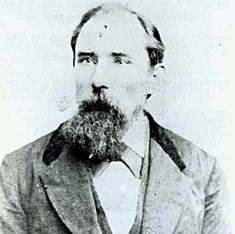
1878 – John “Black Jack” Kehoe, the last of the “Molly Maguires,” was executed in Pennsylvania.
The Molly Maguires, an Irish secret society that had allegedly been responsible for some incidences of vigilante justice in the coalfields of eastern Pennsylvania, defended their actions as attempts to protect exploited Irish-American workers
Kehoe was arrested and hanged for the 1862 murder of mine foreman Frank W.S. Langdon, despite the fact that it was widely believed he was wrongly accused and not actually responsible for anyone’s death. Although the governor of Pennsylvania believed Kehoe’s was innocent, he still signed the death warrant.
The Molly Maguires, a film starring Sean Connery as Kehoe, was released in 1970.
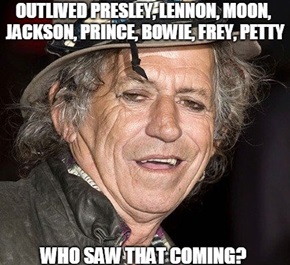
1943 – Keith Richards, guitarist/songwriter with the Rolling Stones, was born.
I normally don’t mention birthdays but I’m making an exception in this case because against all odds, “Keef” is somehow still alive!
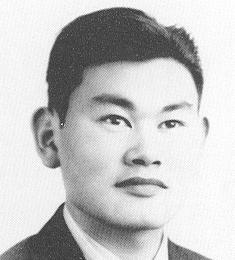
1944 – In a landmark United States Supreme Court case concerning the constitutionality of Executive Order 9066, which ordered Japanese Americans into internment camps during World War II regardless of citizenship (Korematsu v. United States), the Court sided with the government in a 6-3 decision that the exclusion order was constitutional.
Fred Korematsu was a Japanese-American who decided to stay in San Leandro, California and knowingly violated Civilian Exclusion Order No. 34 of the U.S. Army. He argued that Executive Order 9066 was unconstitutional and that it violated the Fifth Amendment to the United States Constitution. He was arrested and convicted. No question was raised as to Korematsu’s loyalty to the United States. The Circuit Court of Appeals affirmed the conviction, and the Supreme Court agreed to review the case.
Six of the eight justices appointed by President Franklin D. Roosevelt sided with the president. The lone Republican appointee, Owen Roberts, dissented. The opinion, written by Supreme Court justice Hugo Black, held that the need to protect against espionage outweighed Fred Korematsu’s individual rights, and the rights of Americans of Japanese descent.
On November 10, 1983, Korematsu stood in front of U.S. District Judge Marilyn Patel and delivered the comment at the top of this article. Judge Patel formally vacated the conviction, but was incapable of overturning the Supreme Court’s decision.

1957 – The Shippingport Atomic Power Station in Pennsylvania – the first nuclear facility in the United States to generate electricity – went online.
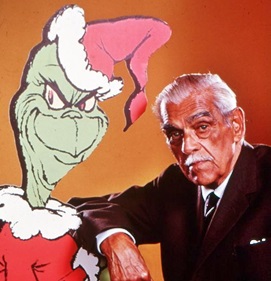
1966 – How The Grinch Stole Christmas, an animated television special based on the children’s book by Dr. Seuss, premiered on CBS.
The special featured the voice of Boris Karloff as the Grinch and the narrator, but even though viewers have long believed Karloff sang You’re a Mean One, Mr. Grinch, the song was performed – uncredited – by Thurl Ravenscroft.
Karloff received a Grammy Award in the Spoken Word category – the only major performing award of his career – for the album.

1968 – The musical film Chitty Chitty Bang Bang opened in New York City.
The movie featured Dick Van Dyke, who had made a splash four years before in the Disney musical Mary Poppins and whose TV show had been a hit since 1961.
Its real star, however, was Chitty Chitty Bang Bang herself: a magical flying car that always knew how to save the day.
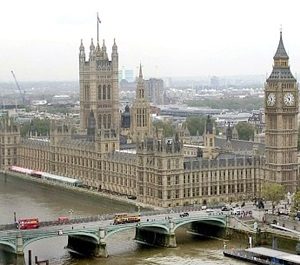
1969 – Britain’s Parliament abolished the death penalty for murder.
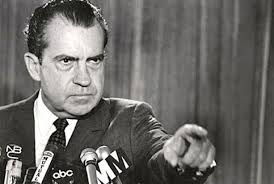
1972 – Following the breakdown of peace talks with North Vietnam just a few days earlier, President Richard Nixon announced the beginning of a massive bombing campaign to break the stalemate.
For nearly two weeks, American B-52s and fighter-bombers dropped over 20,000 tons of bombs on the cities of Hanoi and Haiphong. The United States lost 15 of its giant B-52s and 11 other aircraft during the attacks. North Vietnam claimed that over 1,600 civilians were killed.
The bombings continued until December 29, at which time the North Vietnamese agreed to resume the talks. A few weeks later, the final Paris Peace Treaty was signed and the Vietnam War came to a close.
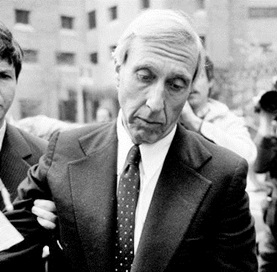
1987 – Ivan F. Boesky was sentenced to three years in Southern California’s Lompoc Federal Prison for plotting Wall Street’s biggest insider-trading scandal. Eighteen months earlier, while speaking at the University of California, Berkeley, he had told business school students:
“Greed is all right, by the way. I want you to know that. I think greed is healthy. You can be greedy and still feel good about yourself.”
Director Oliver Stone used Boesky’s speech as the inspiration for one given by the ethically challenged corporate raider Gordon Gekko in the 1987 film Wall Street.
Boesky served 22 months before being released for good behavior. He provided the federal investigators with so much information on the fraud in the securities industry, that he almost single handedly ended the 1980s boom era.

1997 – Comedian/actor Chris Farley died of a cocaine and morphine overdose. Advanced atherosclerosis was cited as a “significant contributing factor.” He was only 33.
He was a cast member of Chicago’s Second City before moving on to a wildly successful 5-year run on Saturday Night Live. He later starred in several comedy films, including Tommy Boy, Black Sheep, and Beverly Hills Ninja.

2003 – A jury in Chesapeake, Va., convicted teenager Lee Boyd Malvo of two counts of murder in the Washington-area Beltway Sniper shootings. He was later sentenced to life in prison without parole.
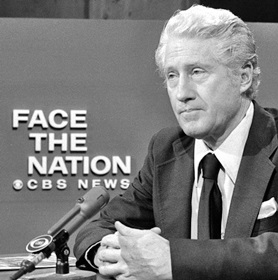
2008 – Former FBI Associate Director Mark Felt, who, after denying his involvement for 30 years, admitted to being the Watergate scandal’s mysterious whistleblower “Deep Throat,” died of natural causes at the age of 95.
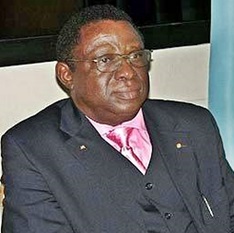
2008 – A U.N. court in Tanzania convicted former Rwandan army Col. Theoneste Bagosora of genocide and crimes against humanity for masterminding the killings of more than 800,000 people in a 100-day slaughter in 1994.
He was sentenced to life imprisonment by the International Criminal Tribunal for Rwanda. In 2011, the sentence was reduced to 35 years imprisonment.
Compiled by Ray Lemire ©2018 RayLemire.com / Streamingoldies.com. All Rights Reserved.